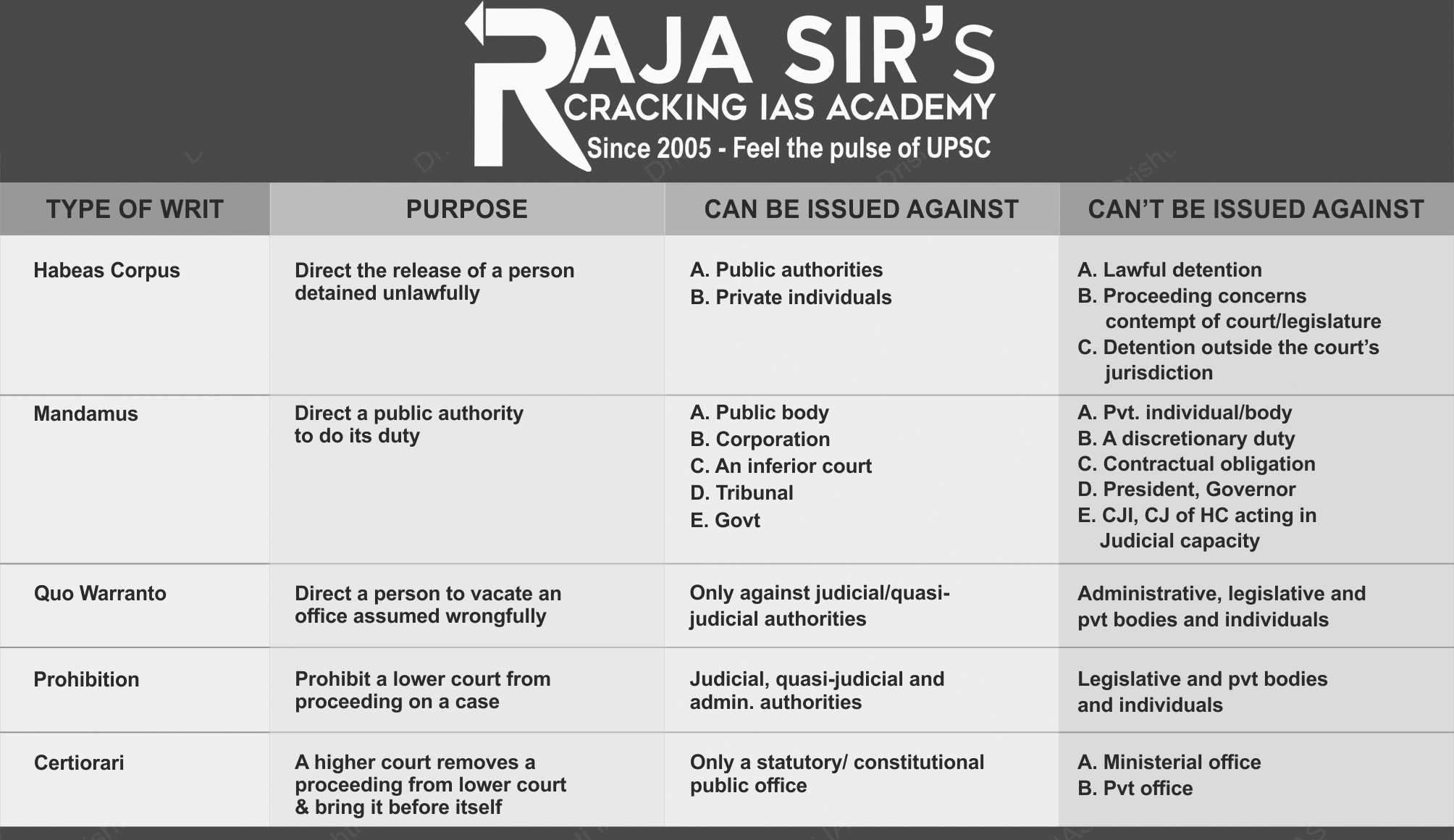- Home
- Prelims
- Mains
- Current Affairs
- Study Materials
- Test Series
Write approximately 150 words on "Legal remedies in Part III of the Constitution of India". (UPSC CSE Mains 2024- Political Science and International Relations, Paper 1)
Article 32 empowers the supreme court to issue writs for the protection of fundamental rights in case of violation because of this authority to issue directions or orders for the execution of any of the rights conferred by the constitution The Supreme Court is made ''the protector and guarantor of Fundamental Rights''. A writ is a formal, legal document issued by the executive or judicial body which commands an individual or entity to do or refrain from doing a particular act. It can be in the form of orders, warrants, directions, summons, etc. The aggrieved person applies for issuance of a writ through presenting a writ petition before the competent authority. Dr. B.R. Ambedkar remarked Article 32 as the heart and soul of the constitution.
Types of Writs

Significance of Article 32
- It is a fundamental right that empowers citizens to seek justice and protection for their fundamental rights.
- It enables the Supreme Court to exercise its power of judicial review.
- It acts as a check on the power of the executive and legislative branches of the government.
Limitations of Article 32
- It can only be invoked for the enforcement of fundamental rights. It does not apply to other legal rights or disputes that do not fall within the ambit of fundamental rights.
- Under Article 32, a person can file a petition only if they have a personal interest in the case. This means that a person cannot file a petition on behalf of others unless they are directly affected by the violation of fundamental rights.
- It is not an exclusive remedy. It is subject to the availability of alternative remedies under the law. If a person has other legal remedies available, they may be required to exhaust those remedies before approaching the Supreme Court under Article 32.
- The Supreme Court has the discretion to refuse to entertain a petition under Article 32 if it believes that the case does not involve a substantial question of law or if it is satisfied that there are adequate alternative remedies available.
While Article 32 has certain limitations, it plays a crucial role in protecting the rights of individuals and upholding the principles of justice and equality. Article 32 is often regarded as the "heart and soul" of the Indian Constitution.









 Latest News
Latest News
 General Studies
General Studies